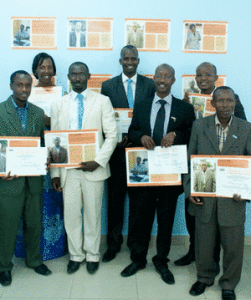Facts
In October 2013, TRIAL and the NGO Stichting Russian Justice Initiative, submitted a communication to the UN Human Rights Committee on behalf of Mr. Tamerlan Yashuyev, Mr. Khamit Barakhayev, Mr. Rizvan Taysumov, Mr. Salman Temirbulatov, Mr. Arzu Yusupov, and Mr. Magamed Alarkanov.
The six men were arrested in different cities of Chechnya and Dagestan, between September 2004 and February 2005, by security agents respectively members of:
– the Kadyrovtsy pro-Moscow Chechen forces under the effective command of Ramzan Kadyrov, Prime Minister of the Chechen Republic at that time;
– the Operational Investigative Bureau (ORB);
– the city police of Khasavyurt.
They were kept in unacknowledged and incommunicado detention for periods varying between three and 25 days, during which they had no contact with the outside world and were placed outside the protection of the law. All the six men were subjected to torture and severe ill-treatment by State agents to extract confessions of their involvement in terrorist activities.
Later on, the six men were prosecuted and found guilty of several counts related to terrorist attacks. Their confessions obtained through torture were invoked and considered as valid evidence during the proceedings.
Despite the complaints filed by the six men, Russian authorities did not carry out a prompt, independent, impartial, effective and thorough investigation.
To date, no one has been sanctioned for the torture inflicted to the six authors of the complaint, who are currently held in different high security prisons in the Russian Federation.
The six authors of the complaint request the Human Rights Committee:
– to find that they are victims of a violation of Art. 7 (prohibition of torture), read alone and in conjunction with Art. 2, para. 3 (right to an effective remedy), of theInternational Covenant on Civil and Political Rights, because of the torture and ill-treatment they have been subjected to and the failure of Russian authorities to carry out an independent, impartial, thorough and effective investigation on their allegations and to judge and sanction those responsible;
– to find that they are victims of a violation of Art. 9, paras. 1, 2, 3 and 4 (right to personal liberty and security) of the Covenant, because they were subjected to arbitrary arrest and detention; they were not informed, at the time of arrest, of the reasons for their respective arrest nor were they promptly informed of the charges against them; and they were not brought promptly before a judge or other officer authorized by law to exercise judicial power;
– to find that they are also victims of a violation of Art. 14, paras. 2, 3 (a), 3 (b) and 3 (g), of the Covenant (right to fair trial), because they were not presumed innocent until proved guilty according to law; they were not informed promptly and in detail in a language which they understand of the nature and cause of the charges against them; and they did not have adequate time and facilities for the preparation of their defence and to communicate with their respective counsels. Moreover, they were all compelled to testify against themselves and to confess guilt;
– to request the Russian Federation to promptly and effectively investigate and prosecute and sanction those responsible for their torture; to carry out without delay a new trial, ensuring that they can fully enjoy their right to a fair trial; and to ensure that they receive adequate compensation for the harm suffered and integral reparation, including restitution, rehabilitation, satisfaction and guarantees of non-repetition.
On 11 May 2020, the Human Rights Committee gave a positive decision in the case. Russian authorities must now provide the victims with an effective remedy, including the conduct of an investigation, full redress and taking all steps necessary to prevent similar violations from occurring in the future.
The General Context
In Chechnya and North Caucasus, unlawful detentions and torture are widespread practices mainly aimed at coercing confessions from persons deprived of liberty, and leading to court convictions. Members of the Kadyrovtsy and of the former Second Operational Investigative Bureau (ORB-2) are responsible for the abuses in many of these cases. But to date, perpetrators of these crimes enjoy almost complete impunity.

